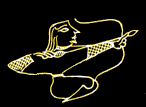
THE JEWS OF KHAZARIA
by Kevin A. Brook
Your comprehensive guide to the earliest history of Jews in Russia

The Khazars were a Turkic people who founded a vast empire in eastern Europe in the early-medieval period. They held back the Arabs from invading Europe and Byzantium (similar to the role of the Franks in the West); hosted traders from all over Europe and Asia; influenced the language and government of early Rus; and impacted many other aspects of the medieval world. The Khazar kingdom was the only nation in its region with a permanent standing army and a supreme court consisting of representatives of multiple religions. In the 9th century the Khazars converted to Judaism.
SPELLING VARIANTS FOR THE KHAZAR KAGANATE AND ITS PEOPLE
 English: Khazaria, Khazar, Khazars, Khazarian; Chazaria, Chazar, Chazars, Chazarian; Chozaria, Chozar, Chozars, Chozarian
English: Khazaria, Khazar, Khazars, Khazarian; Chazaria, Chazar, Chazars, Chazarian; Chozaria, Chozar, Chozars, Chozarian
Hungarian: kazár, kazárok, Kazár birodalom, türkök kazáriában; kabar, kabarok, kavar, kavarok
Finnish: kasaarit, Kasaarien
Estonian: kasaarid, kasaaride, Kasaari kaganaat, Kasaaria
Latvian: Hazāri
Lithuanian: Chazarai
Spanish: jázaro, jázaros, Jazaria; kazaro, kazaros
Portuguese: jazaro; Khazares; cazares, Cazária
Galician: xázaro, xázaros
Aragonese: gazaro, gazaros
Catalan: khàzar, khàzars, Khazària
French: Khazarie, Khazar, Khazars; Khazare, Khazares
Italian: kazar, kazari; cazar, cazari; Khàzaro, Khàzari; Chazary, chazaro, chazara
Romanian: kazar, kazare, Kazari, Kazarii, Kazaria, imperiul khazarilor
Ukrainian: xozar, xozary
Russian: Xazar, Xazarii, Xazary, Xazariya; Khazarii, Khazary, Khazarskaia, Khazarskaja, Khazarskaya, Khazarskom, Khazarsko, Khazarskoj, Khazarskago, Khazarskogo kaganata, Khazarskii kaganat
Belarusian: Xazar, Xazariya
 Bulgarian: Xazari, Xazariya, Xazarskata, Xazarskiya xaganat; Khazari, Khazarskata
Bulgarian: Xazari, Xazariya, Xazarskata, Xazarskiya xaganat; Khazari, Khazarskata
Serbo-Croatian: Hazari, Hazarski, Hazarskog; Kazari
Czech: Chazari (Chazaři), Chazarská, Chazarský, Chazaru, chazarské
Polish: Chazar, Chazarskim, Chazarow, Chazarowie, chazarskich, chazarskiej, Chazarom, Kaganat Chazarski
Welsh: Khazariaid
Greek: Chazaroi, Khazaroi
Turkish: Hazar, Hazarlar
Crimean Tatar: Hazar, Hazarlar
Volga Tatar: Xäzär, Xäzärlär
Chuvash: Xasarsem
Icelandic: Khazara, Khazarar, Khazaría, Khazaríu, Khazarskar; Khazörum
Norwegian: Khasar, khasarer, khasarene, Khasarriket, Khasaria; Khazar, Khazarer, Khazarene, Khazar-riket, Khazaria
Swedish: khazariska, khazariskt, khazarer; Kazariska riket, kazarisk, kazarerna, kazarernas, kazariskt, Kazarien, judiska kazarer
Danish: Khazarer, Kazarisk
Dutch: Chazar, Chazaren; Khazar, Khazaren
German: Chasar, Chasaren; Khasar, Khasaren; Chazar, Chazaren, Chazarisch, Chazarische
Yiddish: Kazar, Kazarn
Hebrew: Kuzar, Kuzari, Kuzarim; Kazariya, Kazariyah; Khazarim
Arabic: al-Khazar
Circassian: X'eser, X'ese, Qese
Georgian: Xazar, Xazarni, Hazar-i
Armenian: Xazir, Xazirk`
Korean: K`ajaru, K`ajaru-indul
Japanese: Hazaaru, kazaaru
Chinese: K'o-sa
"The Khazars originated from the distant East, from the border areas of China. In the seventh century, they were swept by the Great Migrations to the mouth of the River Volga and the shores of the Caspian Sea. Here the Khazars conquered Onogur and Bulgar-Turkic tribes who spoke another Turkic dialect. In the seventh and eighth centuries, this new empire halted Arab expansionism, established contact with Byzantium, and became a decisive force between the Caspian Sea and the River Don up to the middle of the tenth century. Land cultivation, animal husbandry and handicrafts flourished in the empire. Merchants traded not only with Byzantium, but also with the Arab-Persian world and the distant East. The kagans did not prohibit the activities of Christian and Moslem missionaries. Both religions maintained places or worship and schools on Khazar land. Out of political considerations, however, the kagans and their retinues embraced a third great monotheist religion, Judaism. This was to avoid pressure on them from the Byzantine Empire and the various Arab emirates. The peoples of the Khazar Khanate had a more advanced way of life than those of the Central Asian Turkic tribes, whose chief occupation was nomadic animal husbandry. The level of its agriculture and handicrafts industry matched contemporary European standards. In terms of commercial development it even exceeded them. However, the empire was a loosely organized entity, with the fluctuating numbers of subjugated peoples rather than fixed boundaries determining its size. The Magyar tribal alliance constituted one such subjugated people."
- György Balázs, The Magyars: The Birth of a European Nation. Budapest: Corvina, 1989
For more information about the Khazars, visit:
Roman Kovalev's Khazaria Article
Khazarian Army, Wars,
Book,
Khazaria 2, Khazar Names, Short Timeline